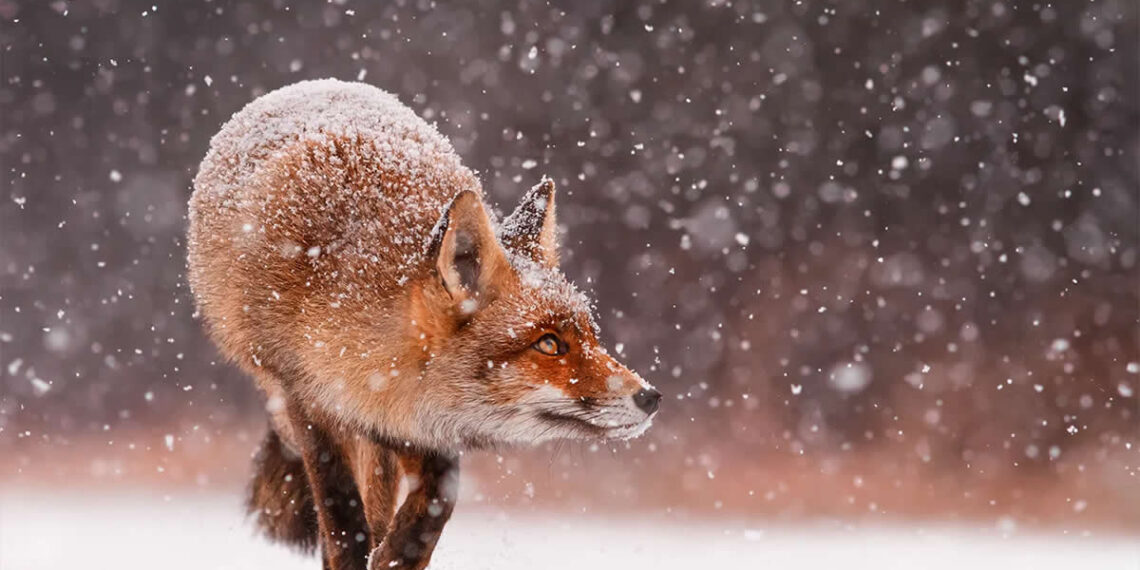Spend just five minutes looking through Roeselien Raimond’s fox photography, and you’ll understand why she’s called the “Fox Whisperer.” After more than fifteen years of studying and photographing red foxes in the wild, Roeselien knows them not as cunning tricksters, but as soulful, complex beings full of charm, wit, and wonder. Her photos reveal foxes as they truly are — not just predators, but personalities.
Roeselien’s journey started with simple curiosity, but it quickly turned into a lifelong love affair with these creatures. “There’s always more to them than meets the eye,” she says. “They’re smart, funny, gentle, mischievous, and endlessly surprising.” Her “Zen Foxes” series went viral for good reason — these calm, blissed-out animals seem to exist in perfect harmony with the world around them. You can almost feel the stillness, the breeze, the peace radiating from their fur.
Her photography is more than just wildlife documentation — it’s visual meditation. Every frame drips with color, balance, and emotion. Roeselien waits patiently for hours, sometimes days, until a fox reveals its truest self — yawning in the snow, smiling under the sun, or closing its eyes in a moment of quiet bliss. She doesn’t chase the shot; she lets the fox set the pace.
In this collection, 31 surprising facts and moments will show you just how deep and delightful fox life really is. You’ll see their humor, their family bonds, and their uncanny calm. Through Roeselien’s lens, foxes aren’t just animals — they’re storytellers of the wild, reminding us that beauty often hides in stillness.
You can find Roeselien Raimond on the web:
#1. Swimming Foxes
When it comes to water, foxes sit somewhere between cats and dogs. They’re not afraid of getting wet, and they swim perfectly well, though I doubt they enjoy it much. In fifteen years of watching foxes, I’ve only seen a handful of swimming foxes, and that says a lot.
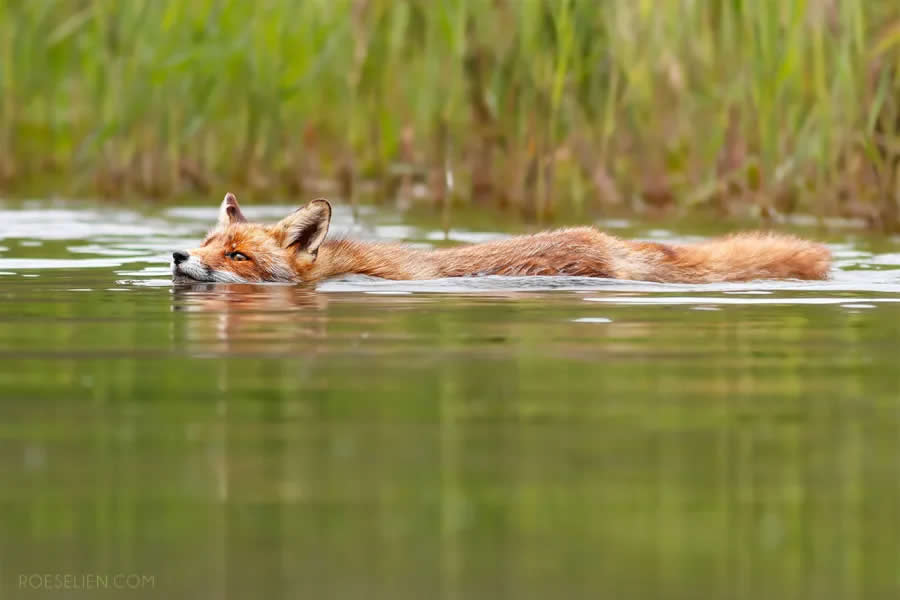
Although foxes are fantastic swimmers, it is unlikely to become their hobby any time soon.
#2. Can Foxes Climb?
Cats have retractable claws; dogs can’t retract theirs at all and red foxes are said to have semi-retractable claws. Scientists still debate this, but one thing I do know: foxes can climb surprisingly well. They may not be cat-level acrobats, but compared to dogs, they’re excellent climbers.
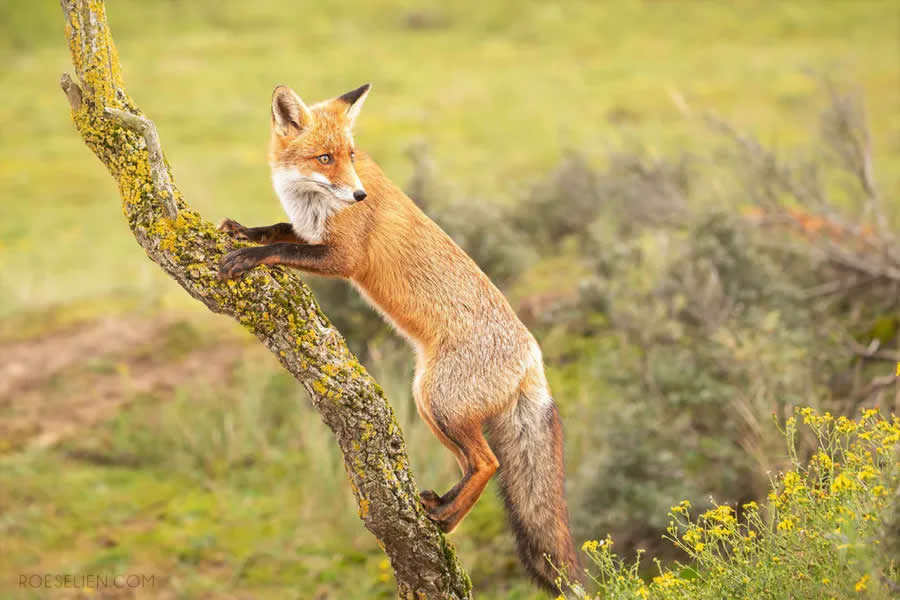
Some foxes, like this young male, are expert tree climbers!
#3. Monogamy or Polyamory?
When it comes to love and loyalty, foxes resemble humans. They often form long-term, even lifelong relationships. I’ve known fox couples who stayed together for years, sharing territory, cuddling, arguing, and making up. Some males are devoted fathers, too. But just like people, when options abound, fidelity tends to waver. In the end, foxes are only human, or maybe it’s the other way around.
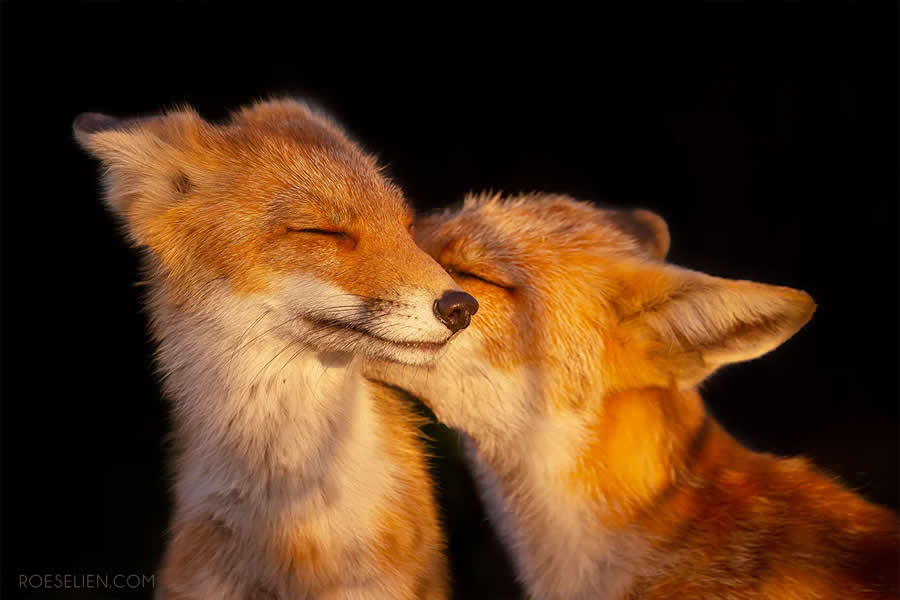
Fox couples are sometimes faithful and sometimes very interested in what else can be found.
#4. Fur Colors
Despite their name, red foxes come in a whole spectrum of colors. From pale yellow to deep orange, reddish-brown, greyish, or even almost blond. There are also rare color variations, like melanism, which makes a fox completely black. This melanistic variant, often called a black or silver fox, is a natural genetic mutation of the red fox (Vulpes vulpes). Even more unusual are true albinos, or the striking red-and-black cross fox.
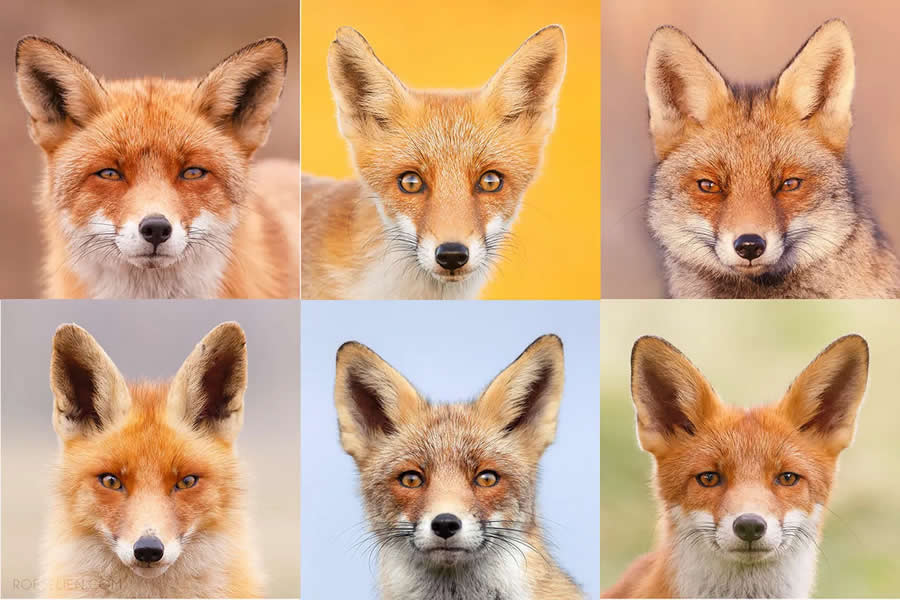
From blond, to orange, from grey to red – foxes come in many fur colors.
#5. Caching Food
When food is plentiful, foxes bury their leftovers as a backup for leaner times. This behavior, known as caching, involves digging a small hole, placing the food inside, and using their nose like a shovel to cover it with sand, soil, or leaves. They sometimes even urinate on the spot as their own little GPS marker.
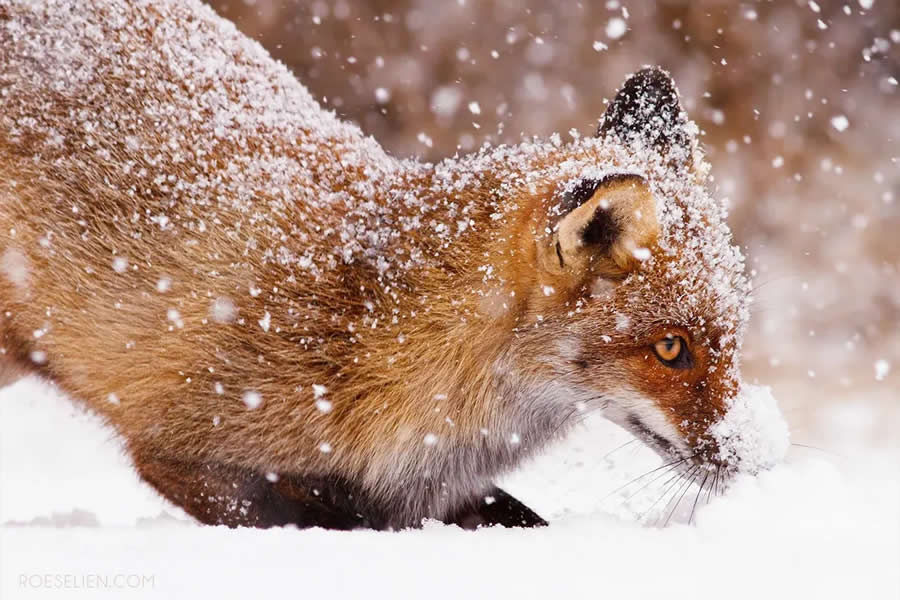
Foxes use their noses to bury food and save it for later.
#6. A World of Scents
One spring day, I saw a fox cub dash past me: along the water, past a tree, up a hill, and gone! Fifteen minutes later, her mother appeared, sniffing the exact same route her kit had taken. Knowing foxes have a good sense of smell is one thing but seeing it in action reveals they live in a scent dimension far beyond our imagination.
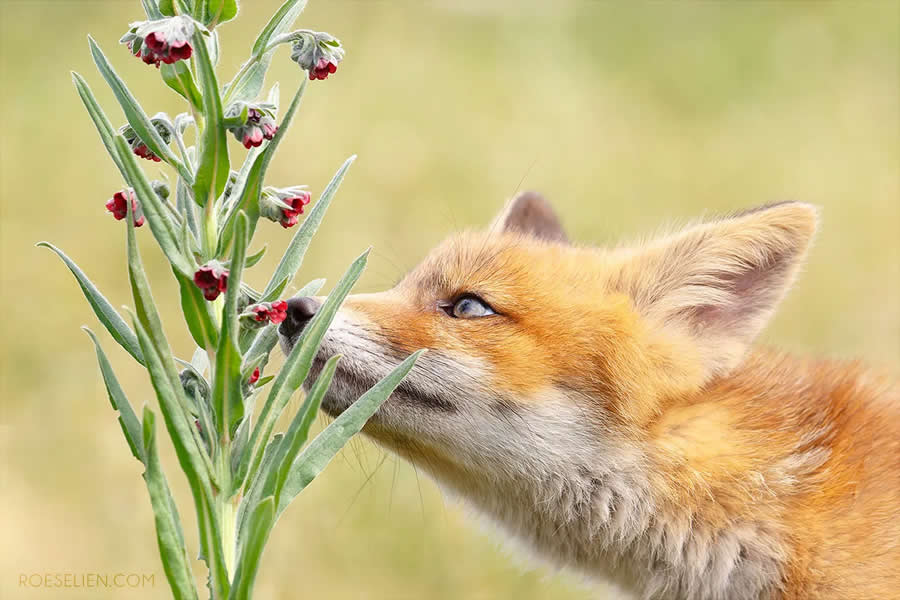
A young fox cub explores an entirely new world with it’s nose.
#7. Surplus Killing / Hen-house syndrome
Foxes are sometimes criticized for killing more prey than they can eat, often due to the artificial abundance. A behavior known as surplus killing, or henhouse syndrome. But it’s not cruelty; it’s instinct. A fox simply seizes a rare opportunity when prey is abundant, just as we might stock up on sale items or – just in case- emergency rations. If given the chance, a fox will return to retrieve the leftovers to feed its young or store them.
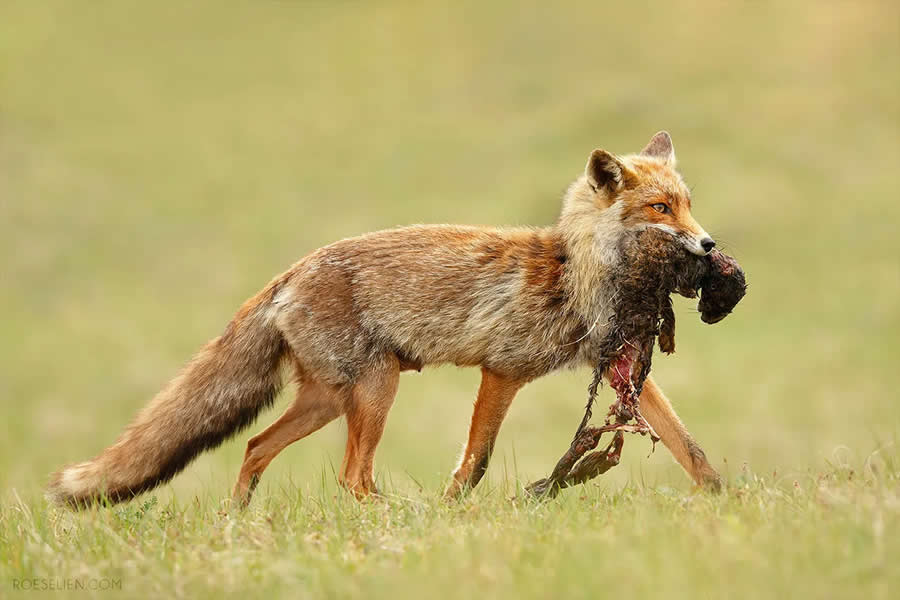
In times of abundance, foxes will store up food, and who proves them wrong?
#8. What Does the Fox Eat?
In the wild, foxes are fond of meat, like rabbits, mice, rats, young deer, eggs, fish, frogs, insects. They also enjoy berries, fruit, and worms. I once saw a fox leap into the air to catch a dragonfly and could hear the crunch of its wings! Foxes are omnivores, and city foxes prove it: peanut butter sandwiches, milkshakes, Big Macs… they’re not picky eaters.
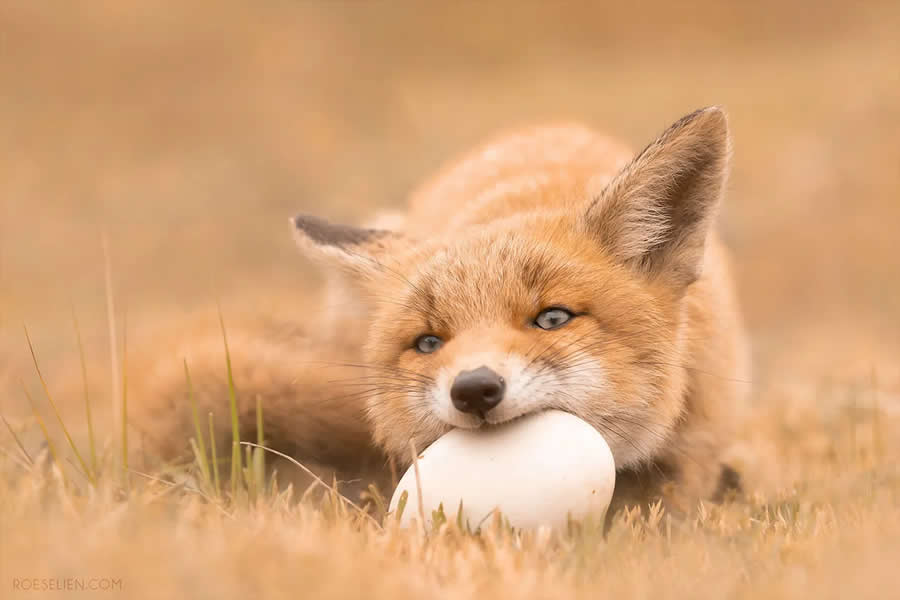
Fox kit trying to devour a swan egg
#9. Are Foxes Solitary?
It’s often said that foxes are solitary animals. They don’t form packs like wolves, but they do have strong family bonds. A typical group might include a pair with their cubs, and sometimes older offspring that help raise the new kits. Female foxes are nurturing and protective. Mothers stay close to the den while the male hunts and brings food. Helpers, often daughters or even unrelated foxes, assist with raising the young. This cooperative care is called alloparenting.
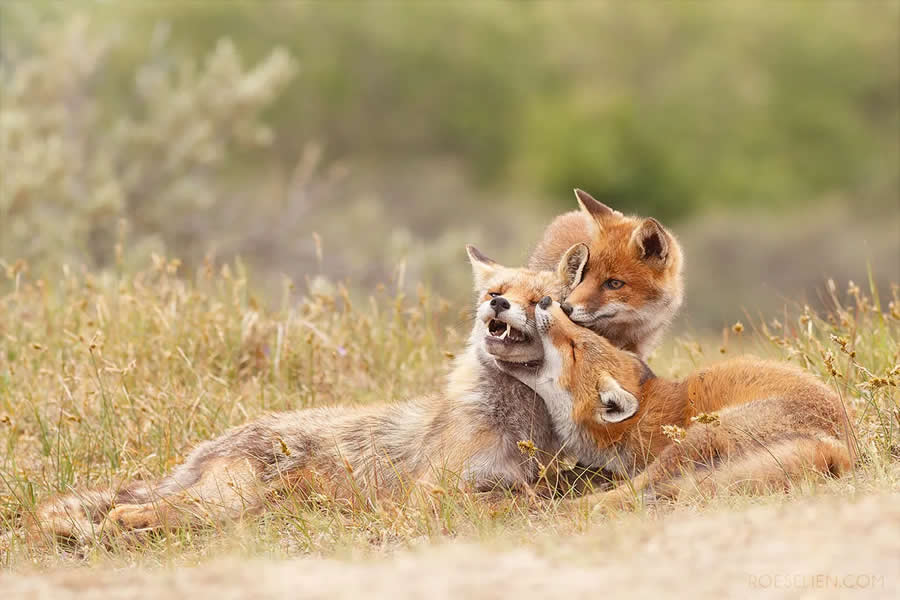
Foxes have strong bonds. Fox’s motto: The more the merrier. That is, as long as it’s family.
#10. Shared Parenthood
Sometimes fox families take it even further. I’ve seen dens with as many as ten cubs; the offspring of both a mother and her grown daughter, who pooled their litters and even nursed each other’s young. It makes you wonder if they knew whose babies were whose… though perhaps that’s just a human concern. To them, it’s all family.
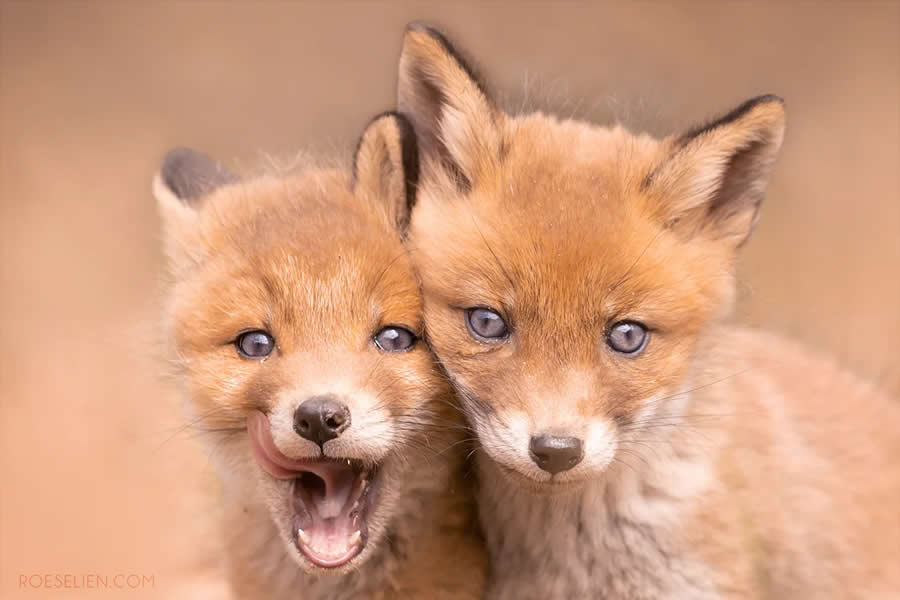
Foxes share a lot, even their fox cubs.
#11. Sloppy Fox
In Dutch we call a messy person a sloddervos — literally, a “sloppy fox.” And for good reason. Fox dens quickly become messy with leftover prey, parasites, and smell. Instead of cleaning up, foxes often just move. They also relocate when cubs grow and need more space, or when danger, flooding, or human disturbance threatens. I’ve learned that foxes move often and never leave a forwarding address!
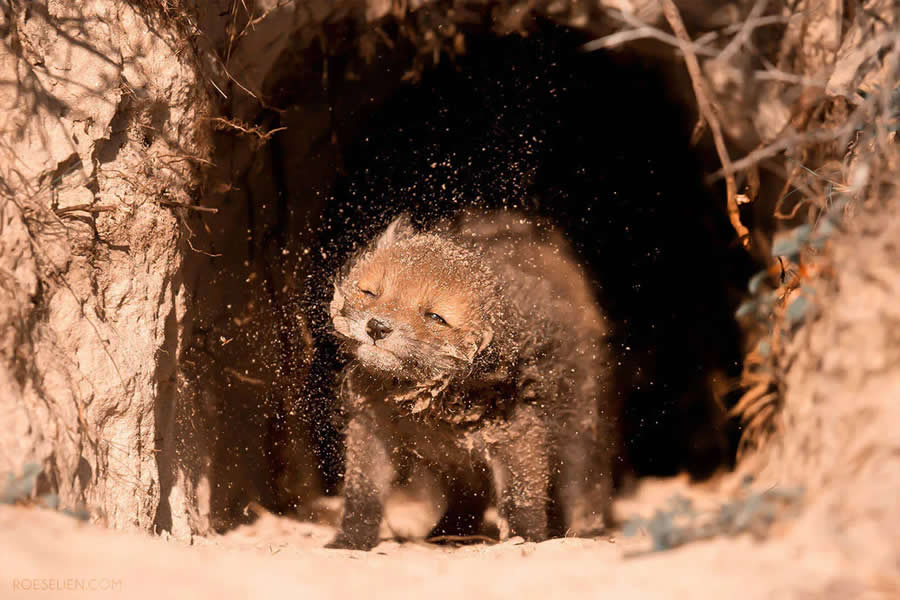
Foxes are sloppy. Is your house a mess? Just get a new one..
#12. World Domination
There are around 45 known subspecies of red fox, each differing in size, color, and behavior. For example, the Ezo red fox lives on Japanese and Russian islands, while the Arabian red fox has oversized ears adapted for desert life. The Trans-Caucasian fox inhabits northeast Turkey. The rarest is the Sierra Nevada red fox, with only about 50 individuals remaining.
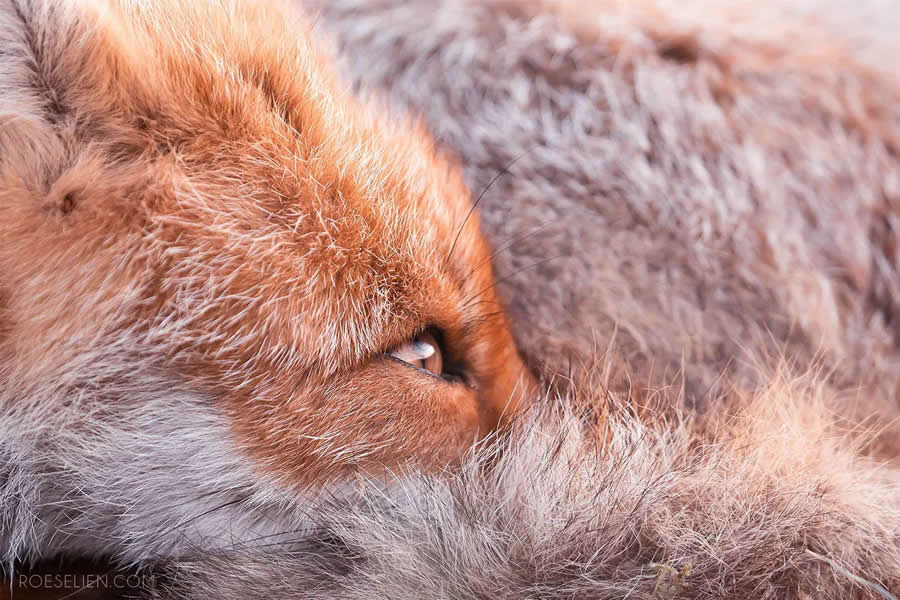
Although there’s no unique subspecies in “my” region, I still notice clear differences between foxes from various parts of the country! The Vulpes vulpes can vary by area in coat color, head shape, tail type, size or nose length.
#13. The Mouse Pounce
Every fox develops its own hunting style. Some specialize in digging out rabbits, others master the perfect mouse pounce. I’ve known foxes that could climb trees to raid nests or dig up beetle larvae with expert precision. Urban foxes, on the other hand, are masters of dumpster diving — or use their best cute look to beg for BBQ snacks. And really, who could resist those eyes?
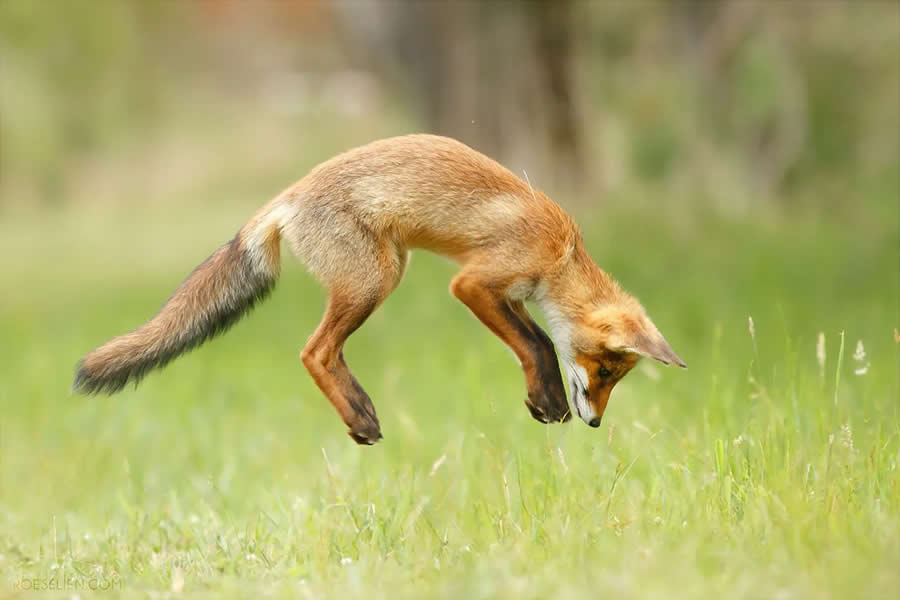
Every fox has its own hunting style.
#14. What Does the Fox See?
Red foxes can use the Earth’s magnetic field to locate hidden prey beneath snow or grass. Scientists believe a protein in their retina allows them to “see” magnetic fields as a visual pattern, helping them gauge distance before pouncing.
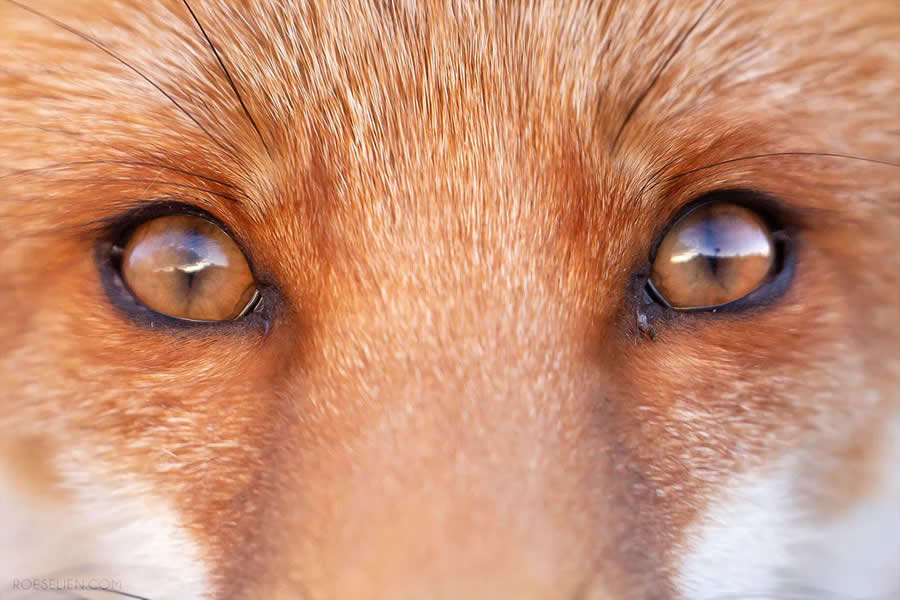
Red fox eyes can see a world we can’t even imagine.
#15. Spreading Out
Young females often stay home to help raise the next litter, but males are pushed out when they reach sexual maturity. It’s not always gentle, but it prevents inbreeding. By dispersing and finding mates elsewhere, young males help keep the population healthy and diverse.
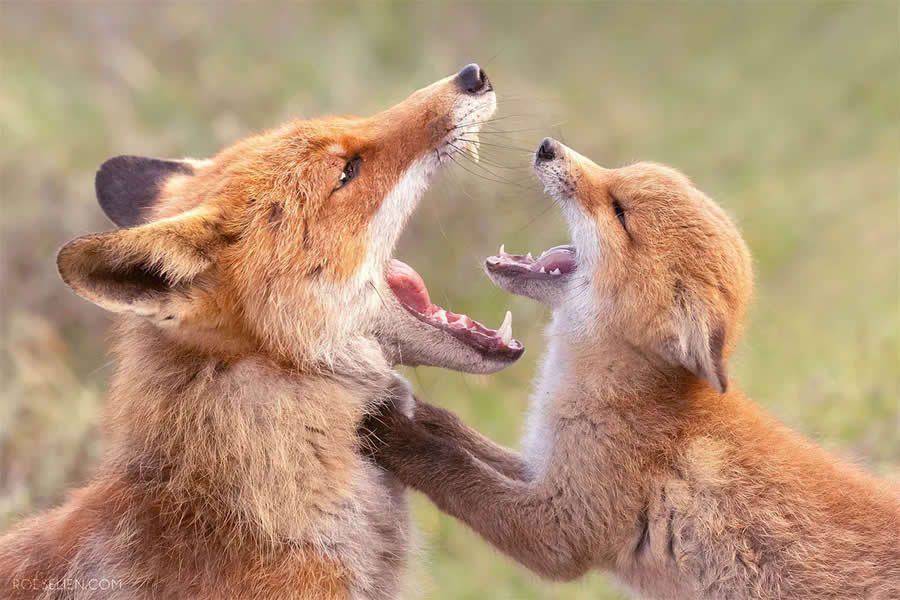
Young dog foxes have to leave the family to keep the population healthy.
#16. Barking Foxes
The first time I heard a fox bark, I had to listen twice. It’s a form of communication, used during mating season to attract partners, or to defend territory. I once heard a lonely cub barking loudly into the distance, perhaps calling for its mother. Fox voices can be surprisingly expressive.
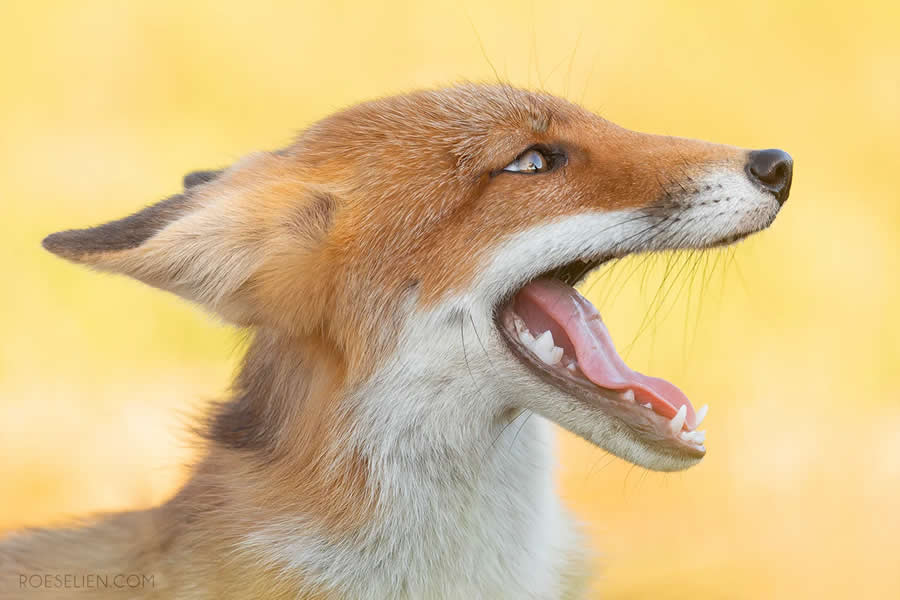
Although they don’t do it very often, foxes can also bark.
#17. They’re (Not) Eating Our Pets!
Foxes rarely attack pets. It’s a persistent urban legend, often spread by fox haters to give foxes an even worse image and thus justify fox hunting. I have had the opportunity to observe their interactions myself on several occasions, and numerous (very funny!) cat-fox videos can be found online. Usually, the fox plays the “dog role” — curious but cautious. Cats typically ignore them, though sometimes unexpected friendships form. As for dogs, most get along fine with foxes, though when conflicts happen, it’s usually the fox that loses.
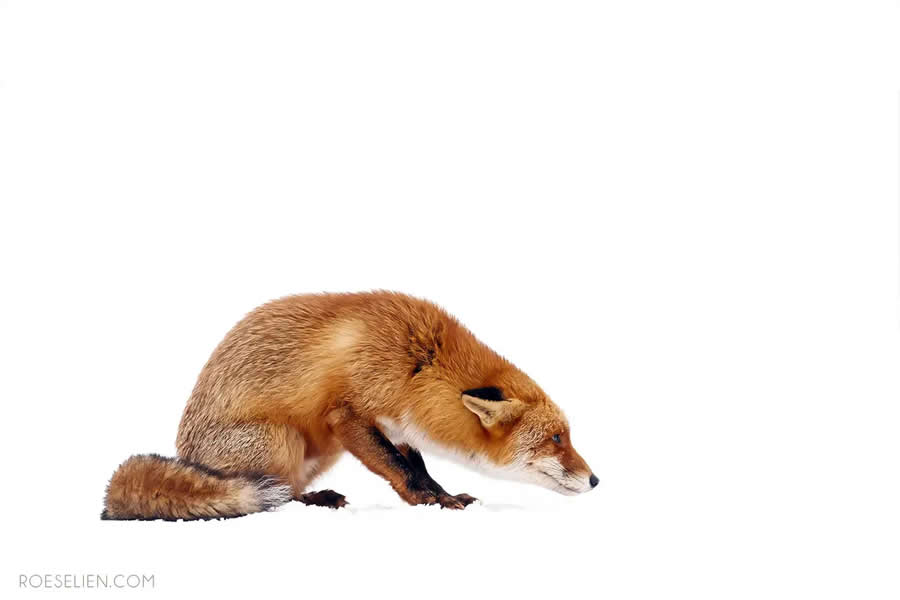
Foxes tend to like cats, but they are also a little scary.
#18. Old Foxes
Foxes in captivity can live up to 15 years, but in the wild they usually survive three to five. In areas without hunting, they can reach seven or even nine years. The oldest fox I knew was a grand old lady of nine — in her lifetime, she probably raised around forty cubs!
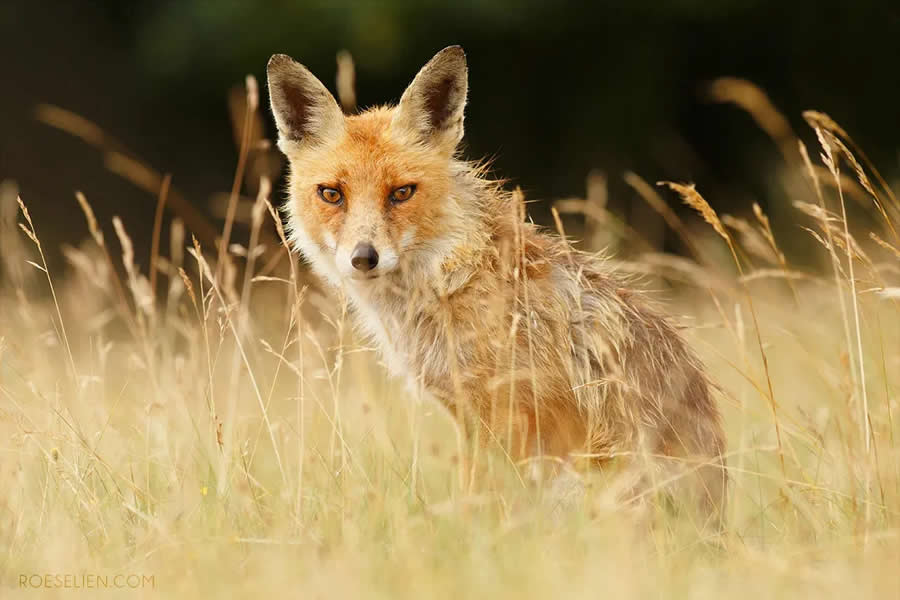
One of the oldest foxes I have known, probably eight years old.
#19. Teen Moms
Red foxes become fertile around ten months old and breed once a year, usually in winter. Within each territory, dominant females get priority for breeding, while subordinates — often daughters — may help raise the young instead. But, true to their nature, not all foxes follow the rules: I’ve known teenage fox moms who raised their cubs alongside their mothers’, happily sharing the work.
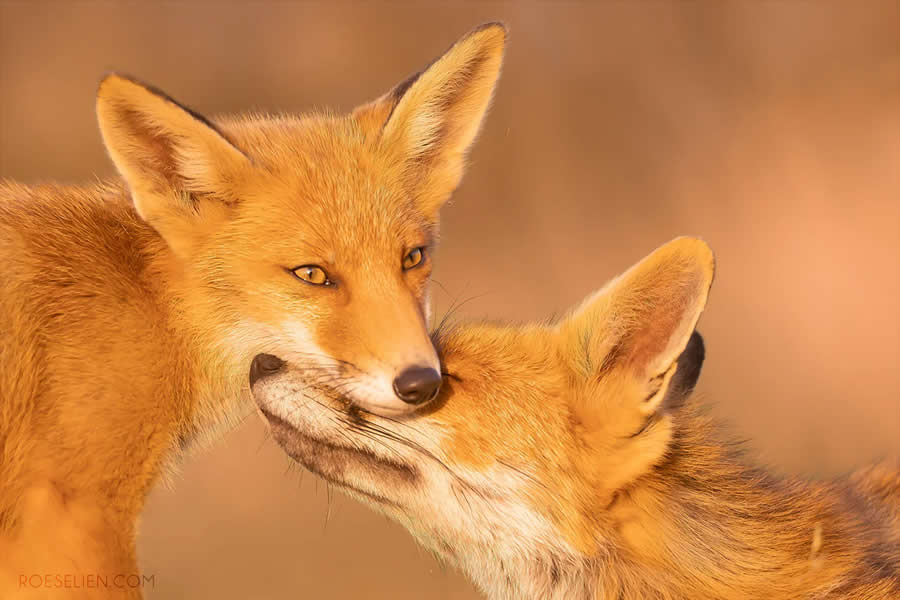
Foxes sometimes have young in their first year of life.
#20. Territory Size
Red foxes defend their territories from rivals. These can range from 0.2 square kilometers in cities to 40 square kilometers in rural or mountainous areas. They mark boundaries with droppings and urine, creating an invisible — but very smelly — fence.
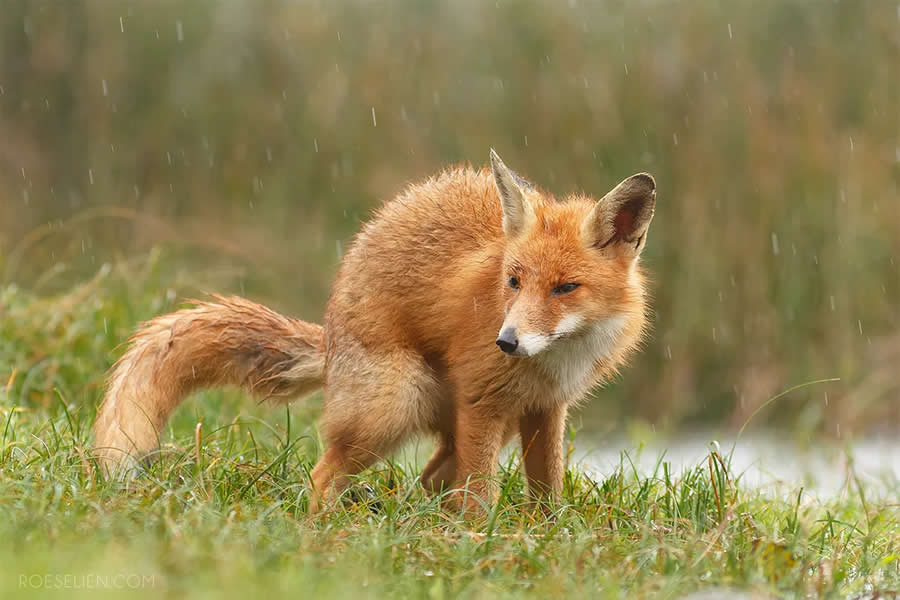
Red fox scent-marking its territory by peeing its boundaries.
#21. Are Foxes Dangerous?
Foxes have been unfairly branded as sly or deceitful. In truth, I’ve met countless foxes and never witnessed unprovoked aggression toward humans — not even near cubs or crowds. The only risks arise when foxes are fed by people; even then, a mistaken nip is curiosity, not hostility. A healthy wild fox poses no danger. In fact, they’re gentle by nature and domesticated foxes show it beautifully.
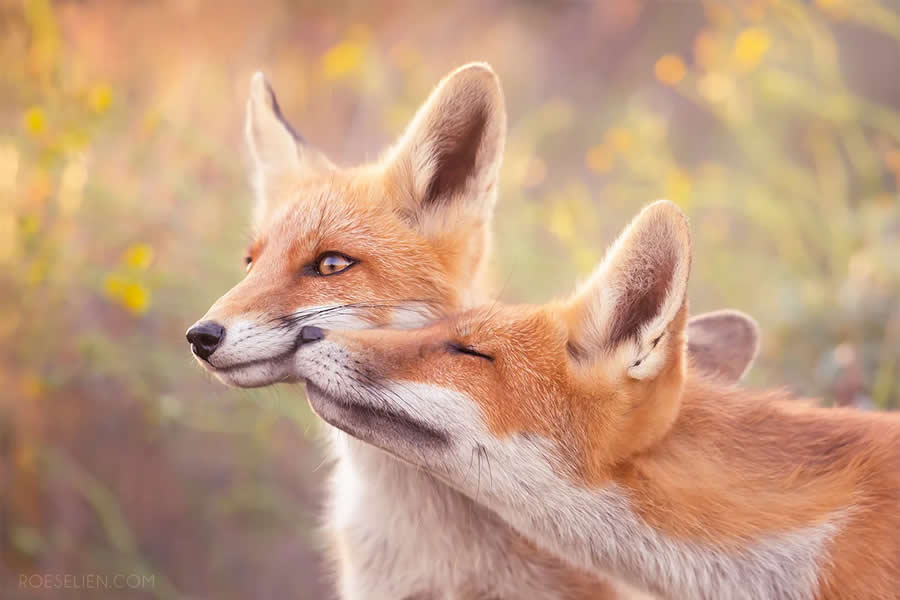
Wild foxes showing their loving nature.
#22. Rabies
Foxes once carried rabies in Europe, but widespread vaccination programs, involving edible vaccine baits dropped from planes, have nearly eradicated the disease here. A reminder that coexistence and prevention work far better than fear.
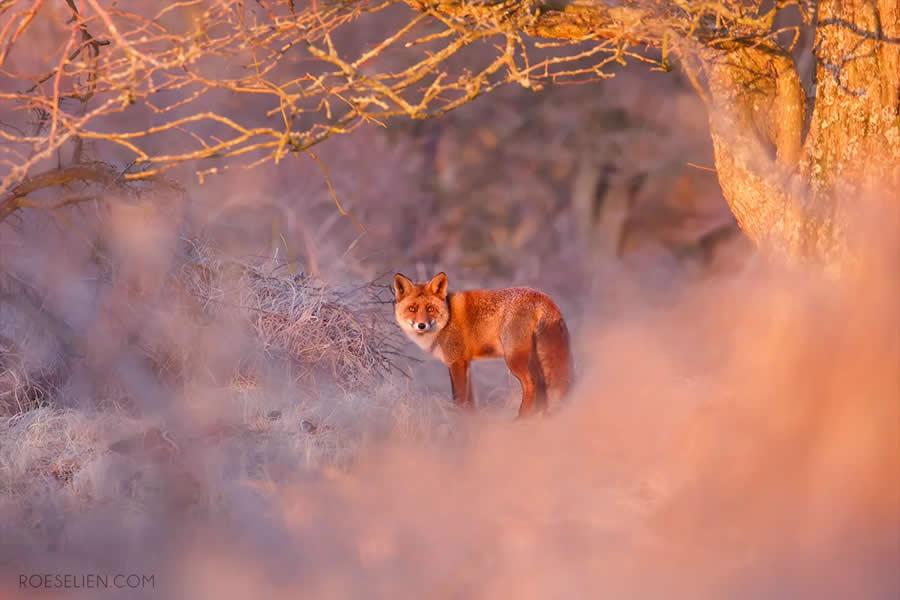
Healthy ecosystems keep foxes — and us — safe.
#23. Do Foxes Laugh?
According to a UCLA study, laughter isn’t unique to humans — at least 65 animal species show vocal play behavior, including foxes!

They say foxes can’t laugh. What do you think?
#24. Regulating Red Foxes
The regulation (euphemism for killing) of foxes rarely works — it often causes population rebounds instead. In healthy ecosystems, fox numbers regulate naturally based on food supply and social structure. Despite hunters’ claims, foxes aren’t pests; they actually help control real ones, like rats.
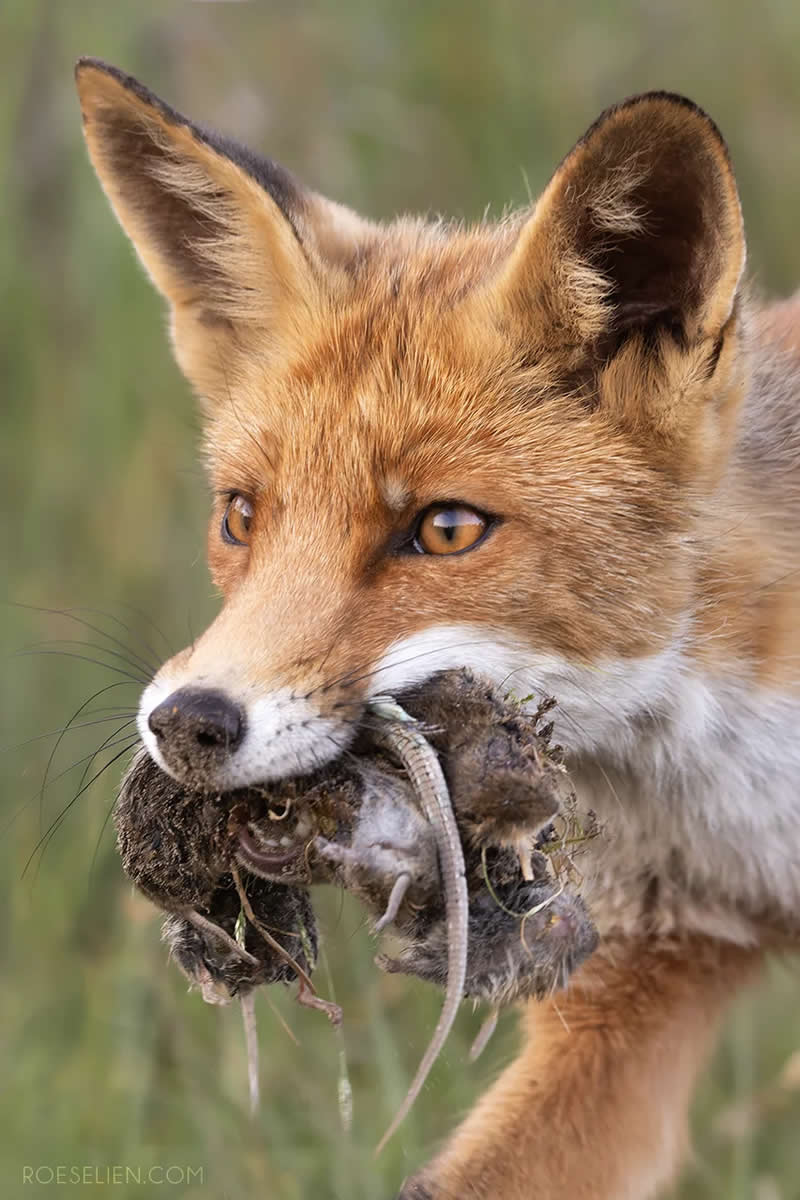
Foxes aren’t pests, they control pests.
#25. Built for Snow
People sometimes worry when they see my photos of foxes in snow — “Poor thing, isn’t it cold?” But their fur coat is perfectly designed for winter. A fox can sleep right in the snow, tail wrapped around like a blanket. I’ve seen young foxes react to snow just like children — ecstatic, playful, rolling and sliding in pure joy.
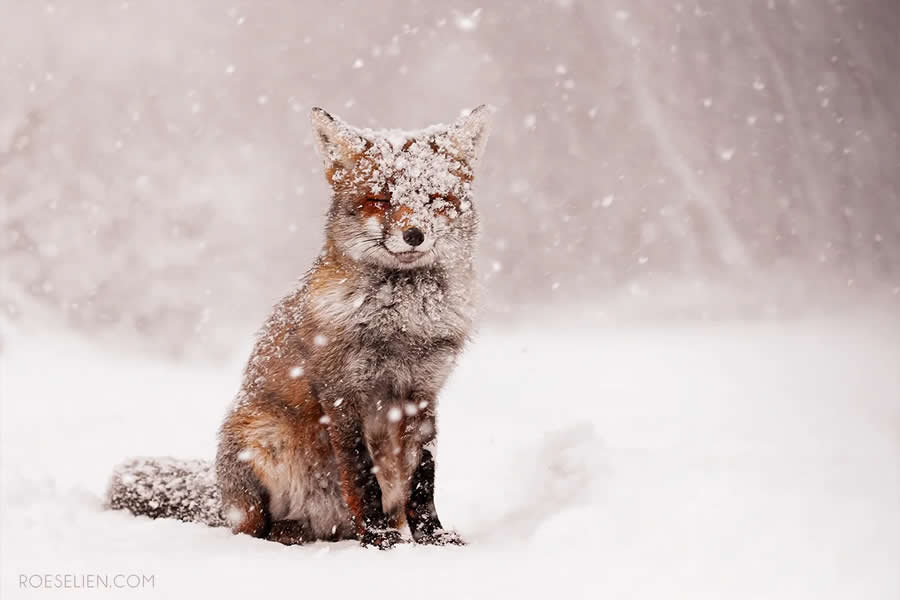
“Fairy-tale Fox” A smiling fox in a snow shower, as if stepping out of a fairy-tale.
#26. The Fox Trot
Instead of fighting with teeth and claws, foxes often rise on their hind legs, place their paws on each other’s shoulders, and open their mouths wide. It looks like an elegant dance — a ritual of dominance where – literally- the biggest mouth wins. Anyone who’s seen this can tell where the term Fox Trotting came from: two dancers, dancing for peace.

Fox trot; fighting foxes pushing each other with wide open mouths, to avoid bloodshed.
#27. What Does the Fox Say?
Foxes are expressive communicators. Their language ranges from soft whines to theatrical screams — for stolen food, a quarrel, or sheer excitement. When two foxes reunite after a day apart, they can shriek as if welcoming a long-lost friend. Foxes are true drama artists.
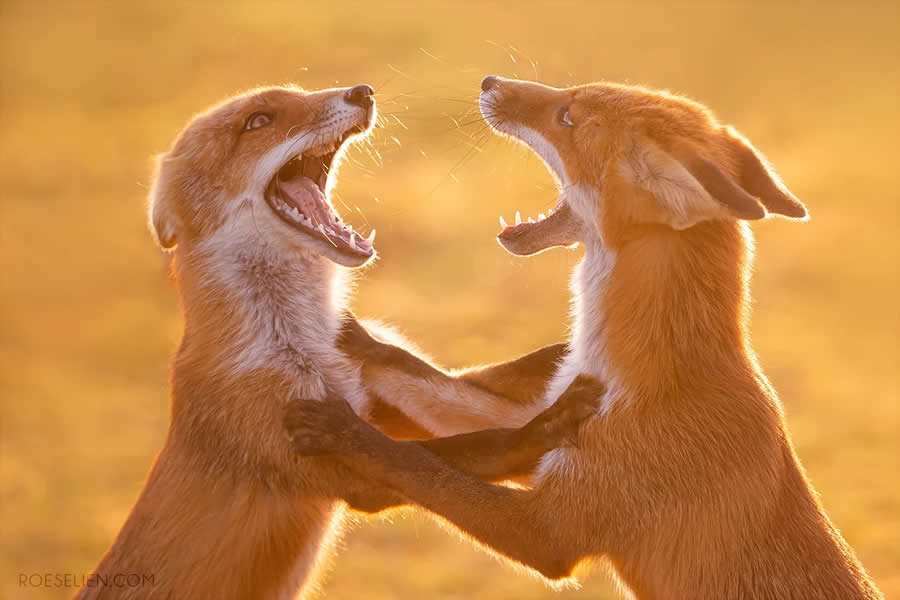
Foxes are quite communicative, also vocally.
#28. Foxes Against Lyme Disease
Foxes are sometimes blamed for spreading disease, but research suggests they may prevent it. Studies in the Netherlands (by Tim Hofmeester) and the U.S. show that areas with healthy fox populations have fewer ticks — and lower Lyme disease risk — because foxes reduce rodent numbers, which are ticks’ main hosts.
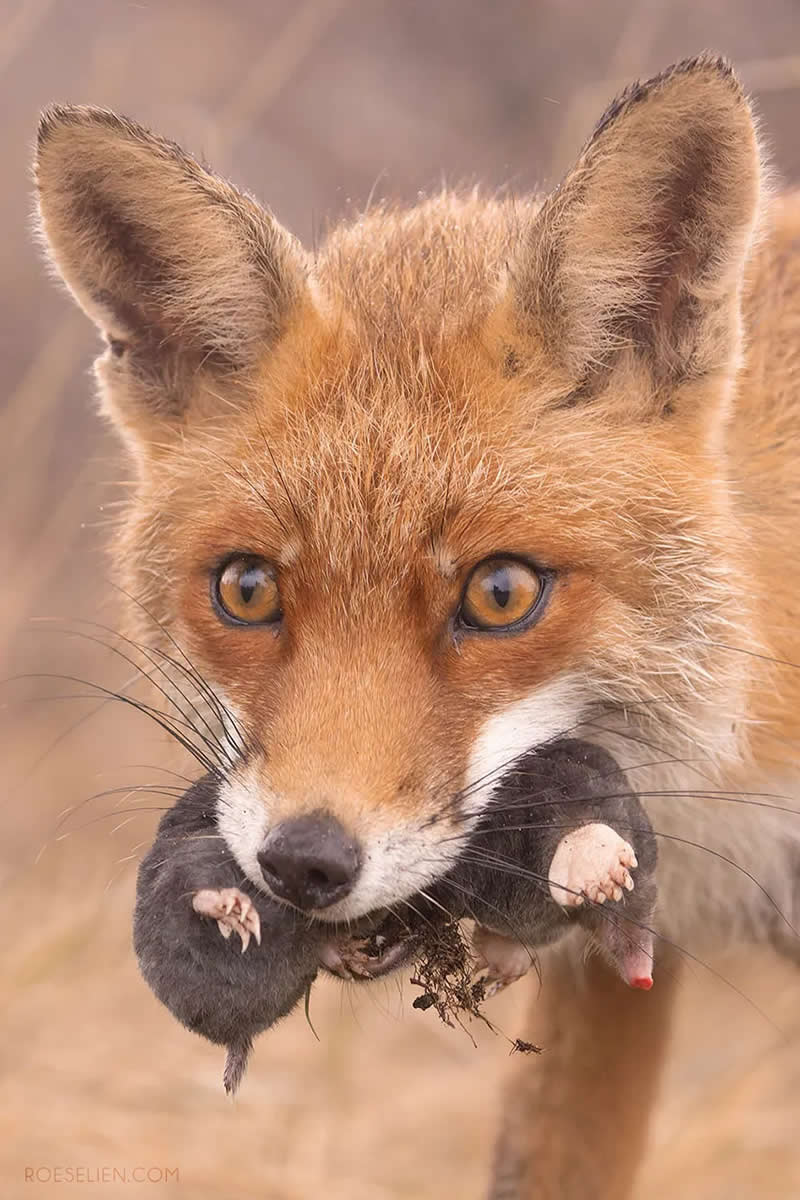
Fox that just caught a mole
#29. What Does the Fox Hear?
Their real superpower isn’t smell — it’s hearing. Foxes can rotate their ears almost 180 degrees and scientists have discovered they can hear a watch ticking from 36 meters away! I’ve never tested it myself, since I don’t wear a watch, but I have witnessed them track rodents and lizards so effectively. I once saw a cub hunting at dusk. She would tilt her head to the left, head to the right, and then, after a very purposeful little jump, without fail, a fat larvae would emerge!
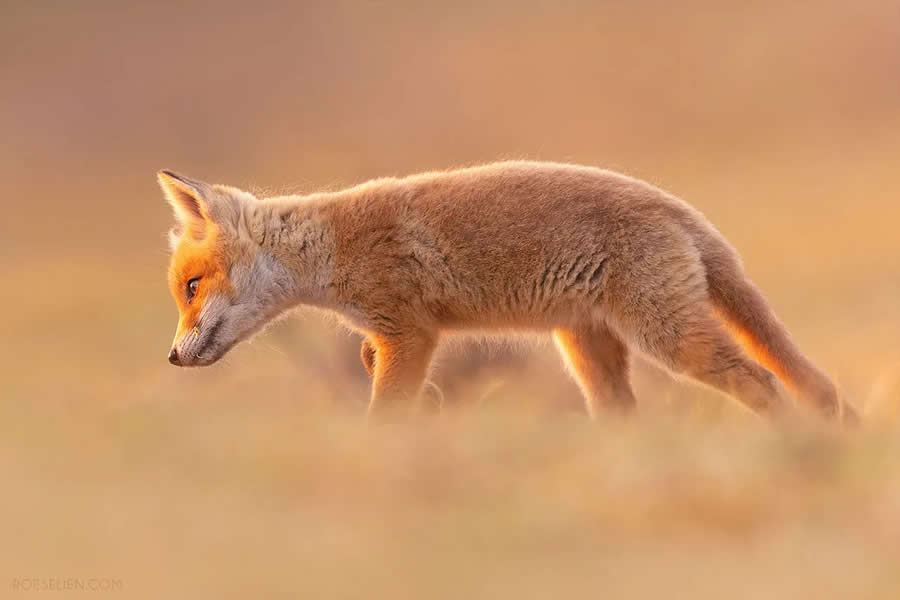
This hunting fox cub listens to the grubs moving underground.
#30. Day or Night?
Foxes are often called nocturnal, but that’s not entirely true. In urban areas, they’re frequently active during the day. It’s human persecution that’s driven them into the night. In places where they’re treated with respect, they enjoy both daylight and moonlight.

Day or night, foxes like both.
#31. Masters of Adaptation
Foxes may not solve puzzles like ravens or dolphins, but they excel at adaptation. They learn fast, remember smells and sounds for years, and find clever ways to survive anywhere — from tundras and deserts to cities and suburbs. With the widest range of any carnivore, the red fox truly is nature’s ultimate survivor.

Red foxes can survive almost everywhere, from deserts to the Arctic, in forests, trees, swamps and meadows, in nature and in crowded cities.
Forever Surprising
If I’ve learned one thing over the years, it’s this: the more you know about foxes, the more they surprise you. They can be lazy or bold, swimmers or climbers, hunters or beggars — each one unique, unpredictable, and endlessly fascinating. And that’s exactly what keeps me coming back. Never a dull moment with a fox.

The more you know, the less you know. Foxes never cease to amaze!

